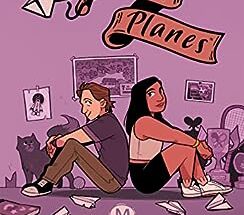Next Chapters is a biweekly feature spotlighting graduates of GrubStreet’s Novel Incubator program, which has been running since 2010.
Novel Incubator Year: 7
Just-released project: Debut novel, Kill the Prince (Winding Road, ’22), the story of a mixed martial artist who hides his concussions from his girlfriend and his coach and faces a crisis of masculinity when his health implodes just as he is on the cusp of stardom.

What are you reading now?
I just finished Toad, a previously unpublished novel by Katherine Dunn. I hadn’t even read Geek Love, the book that made her a counterculture icon, but now I need to read more of her work, including her boxing writing.
Toad is about a woman who’s withdrawn from the world and broods over everything, especially how she spent her early 20s. It sounds like a downer, and it is, but it’s also fun and funny. There’s some really visceral and savage writing and all these great moments about feeling like you’re ugly and unworthy of love. There are also crushing parts that show what happens when hippie ideals that sound great on paper lead to grim, real-world consequences. Again, sounds like a downer, but the writing is so unique, and the humor is so unexpected that I looked forward to reading it every night.
There are also these meandering parts of the book, and you can understand why publishers didn’t want to take a chance on it. But I think this is the coolest thing about the book, the meandering. AI couldn’t write this. Only a beautifully imperfect human could.
What’s the origin story of your Incubator novel?
When I first submitted to the Incubator, I had the least-baked novel out of all my classmates. All I really had was a collection of scenes that loosely, maybe, sort of led to something. It didn’t feel like there was a beginning, middle, or end. But I somehow got into the program.
Partly because I had a flexible schedule and fewer responsibilities than my classmates (I wasn’t working a 9-to-5, I was freelancing, and I didn’t have kids), I was able to do a lot of work. I made a lot of progress in a short amount of time, and I’m really proud of that. It still took a few more years of work after the program to get Kill the Prince where I wanted it to be.
Share a time when something you wrote embarrassed you or caused you regret.
When I was in the Incubator, I turned in a cringe-worthy set of pages about a female character. I made the classic mistake that male writers can get roasted for on Twitter: I sounded like a horny guy describing a woman he was attracted to. I didn’t provide a front-row seat to an honest and lived experience. My classmates, who were mostly women, were kind, but they also didn’t hold back. They told me where I messed up. Thank God they did, or else I would have subjected more people to those chapters. I was embarrassed at the time. But I knew I didn’t want to make the same mistakes on a bigger stage.
What is your work when you’re not writing?
I’m a freelancer who does content marketing for startups. A lot of that work entails ghostwriting for businesspeople on LinkedIn and other platforms. I also just finished a two-year acting conservatory, so I’m looking to act in some plays soon.
How many agents did you query before getting representation, and what qualities did you prioritize in choosing yours?
I queried at least 50 agents. The ones who responded told me they liked it, but they had no idea how to sell it. Eventually, I was contacted by Michael Dolan, the publisher of Winding Road Stories. He had seen me describe the book on Twitter. I got lucky: Michael’s a New Yorker (my book is NYC-centric), he boxes (my book is about a fighter), and he understands the sensibility of the work. We had the same vision for it. He’s been a great partner.
What is your favorite punctuation mark? Why?
My favorite punctuation mark is the em dash — I absolutely overuse it. I think it’s a crutch for when I don’t want to come up with the connective tissue between two thoughts, so I just throw one of those bad boys in. I should probably use fewer of them, but I can’t help it. They just make the ends of sentences hit different.
Dan Fogarty is a former senior editor at Boston.com, a former senior editor of digital sports at USA Today, and a former advisor to the Concussion Alliance. A boxing hobbyist, Dan suffered a mild traumatic brain injury in 2016 during a sparring session. Although the injury required over five years of recovery, he was able to get his life (and his brain) back. It was a long, strange journey that served as the basis for his book. Follow him on Twitter and Instagram at @danfoges.




1 comment